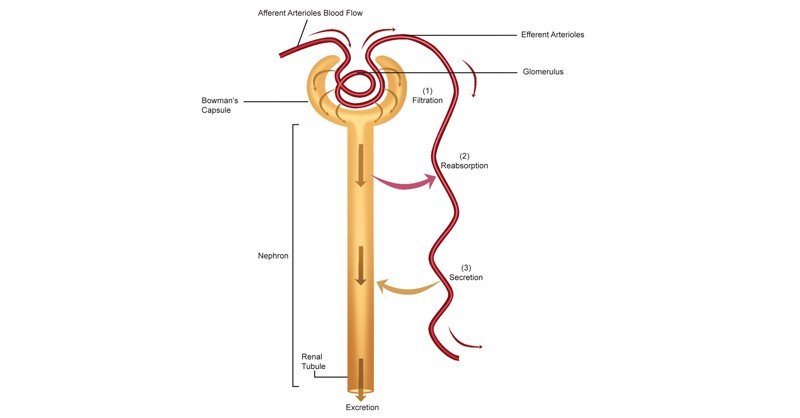Disposal of waste products is an essential activity of living organisms. In the process of excretion waste products (mainly in chemical form: Urea) in liquid form are excreted out of the body. The three main steps involved in the formation of urine are: filtration of the plasma, reabsorption of materials/useful solutes, formation of urine and excretion of urine.
- Renal arteries carry the impure blood plasma to the kidney, from where, tiny afferent arterioles carry blood to the Bowman’s Capsules of nephrons. From here, the wastes are taken out of the blood by pressure filtration. The purified deoxygenated blood returns to heart through renal veins.
2. Essential solutes, sugar and water are reabsorbed back in the nephron tubules (the basic functional unit of kidney) from the impure liquid. The remaining liquid (urine) mostly consists of water, urea, salts and pigment.
3. The urine thus formed travels through the ureter, the urinary bladder and the urethra, and is finally excreted out of the body.


